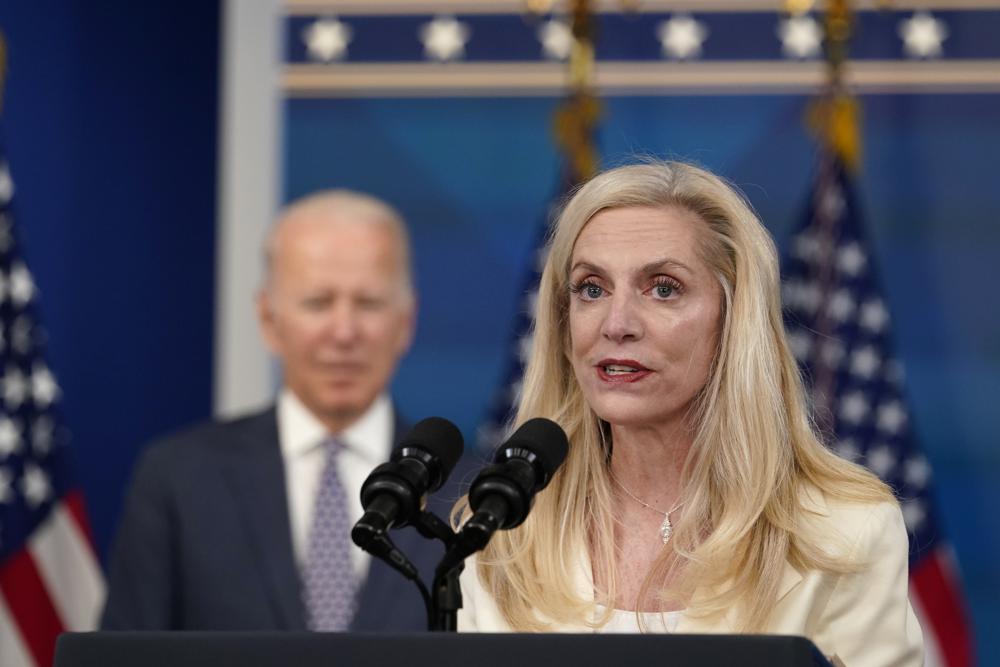Lael Brainard, President Joe Biden’s nominee for the Federal Reserve’s No. 2 spot, said Thursday that combating high inflation is the central bank’s top priority and said she believed the Fed could reduce it without sacrificing economic growth.
Testifying at her confirmation hearing before the Senate Banking Committee, Brainard noted that inflation is “too high, and working people around the country are concerned about how far their paychecks will go.”
“We are taking actions … that I have confidence will be bringing inflation down, while continuing to allow the labor market to return to full strength over time,” she said. Fighting inflation is “our most important task.”
Brainard’s elevation of inflation-fighting as the Fed’s top goal is notable given that she is, for now, the lone Democrat on the Fed’s board and has long been seen as inclined to keep interest rates low to boost employment, rather than to back higher rates to curb inflation pressures. Her stance reflects the abrupt pivot the Fed has recently made under Chair Jerome Powell toward making inflation-fighting its top priority.
Biden nominated Brainard to be the Fed’s vice chair in late November, the same day that he announced he would nominate Powell for another four-year term as Fed chair. Biden is expected soon to nominate three more people to fill vacancies on the board.
On Wednesday, the government reported that inflation spiked to 7% in December from a year earlier, the sharpest such increase in four decades. The acceleration of consumer prices has thrust Fed policy into the spotlight. The central bank is tasked by Congress with keeping prices stable and fostering “maximum employment.”
In his testimony, Powell pledged that the Fed would accelerate its planned interest rate hikes, if needed, to curb high inflation. The Fed has held its benchmark short-term rate near zero since March 2020, when the pandemic plunged the economy into a deep recession.
Fed officials have predicted that they will raise rates three times this year, though many economists envision four hikes. The rate increases, which, in turn, raise borrowing costs for many consumer and business loans, are intended to cool the economy, slow hiring and reduce inflation.
Powell’s — and Brainard’s — challenge this year is to strike the right balance between fighting inflation and supporting the economy. If the Fed raises rates too slowly, inflation may accelerate further and force it to take more draconian steps later to rein it in, potentially causing a recession. Yet if the Fed raise rates too quickly, it could trigger that recession earlier and perhaps unnecessarily.
(AP)











